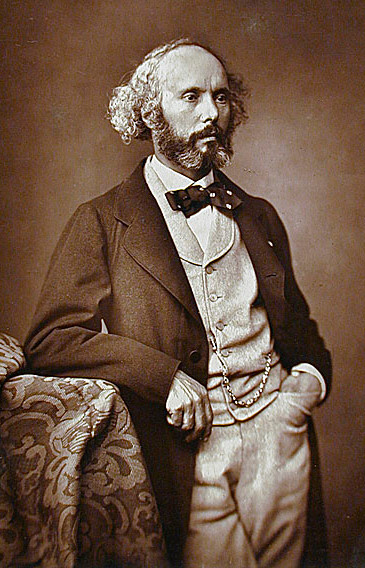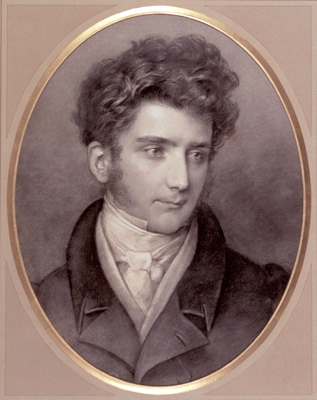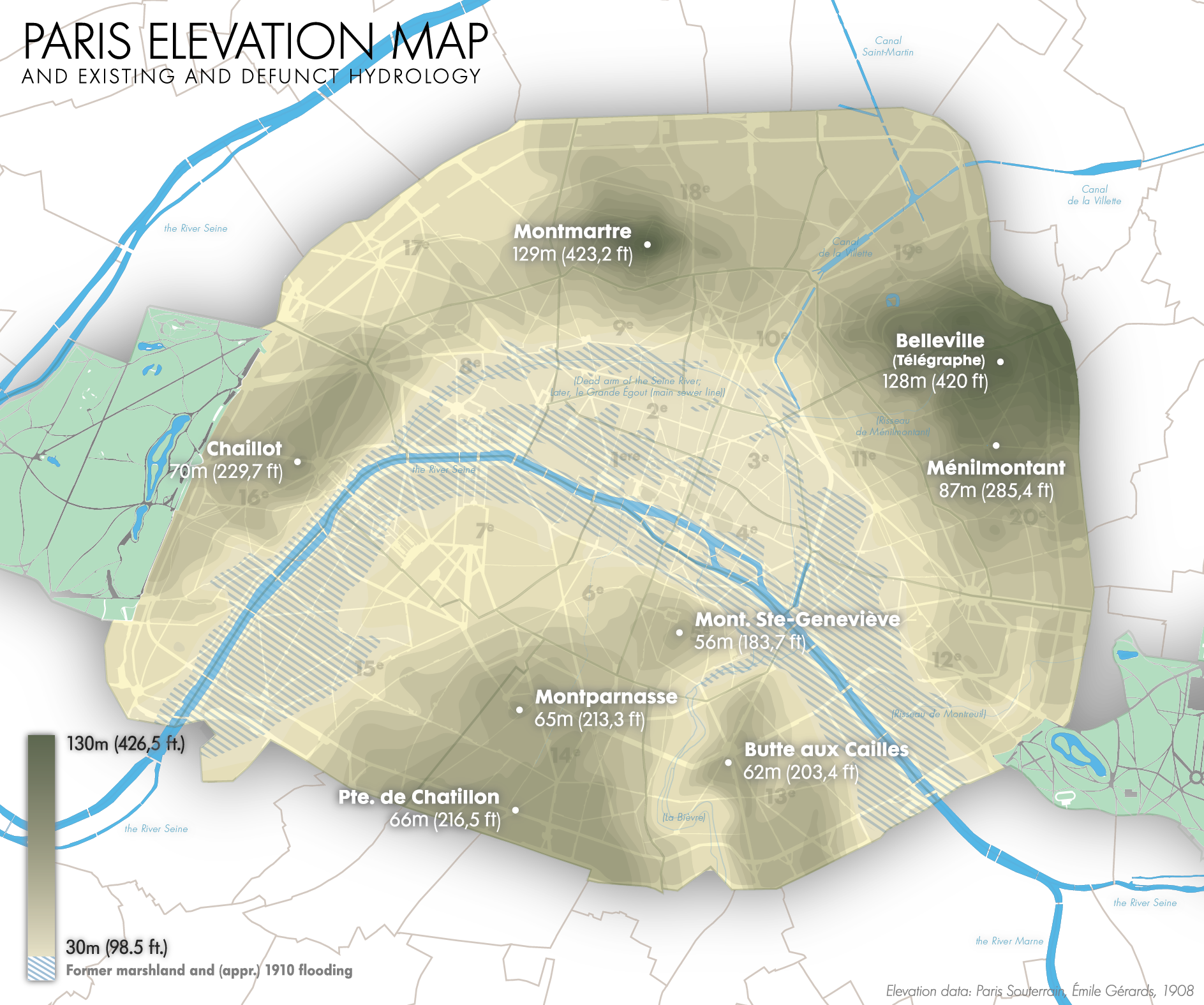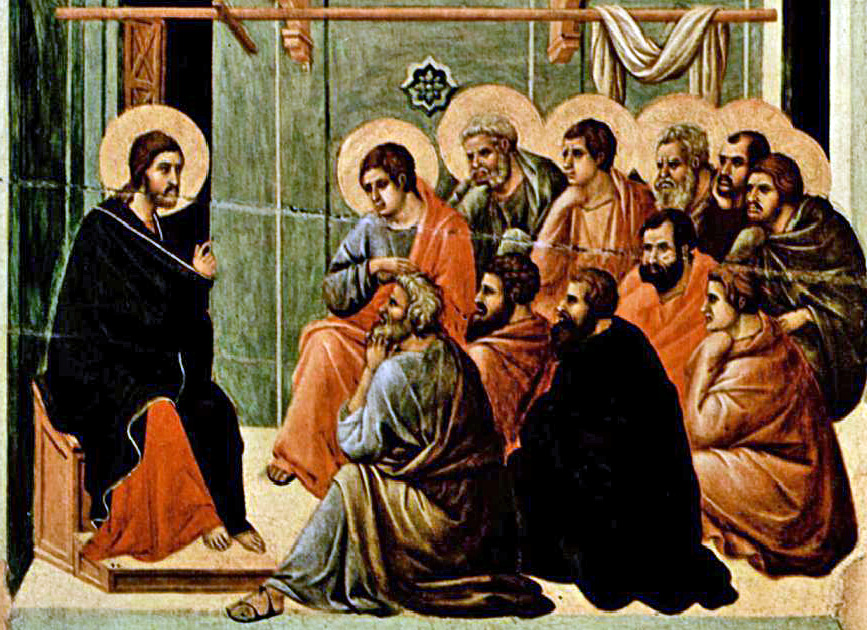|
Saint-Simonian
Saint-Simonianism was a French political, religious and social movement of the first half of the 19th century, inspired by the ideas of Claude Henri de Rouvroy, comte de Saint-Simon (1760–1825). Saint-Simon's ideas, expressed largely through a succession of journals such as ''l'Industrie'' (1816), ''La politique'' (1818) and ''L'Organisateur'' (1819–20)Hewett, 2008 focused on the perception that growth in industrialization and scientific discovery would have profound changes on society. He believed that society would restructure itself by abandoning traditional ideas of temporal and spiritual power, an evolution that would lead, inevitably, to a productive society based on and benefiting from, a " ... union of men engaged in useful work"; the basis of "true equality". Saint-Simon's writings Saint-Simon's earliest publications, such as his ''Introduction aux travaux scientifiques du XIXe siècle (Introduction to scientific discoveries of the 19th century)'' (1803) and his ''M ... [...More Info...] [...Related Items...] OR: [Wikipedia] [Google] [Baidu] |
Claude Henri De Rouvroy, Comte De Saint-Simon
Claude Henri de Rouvroy, comte de Saint-Simon (17 October 1760 – 19 May 1825), often referred to as Henri de Saint-Simon (), was a French political, economic and socialist theorist and businessman whose thought had a substantial influence on politics, economics, sociology and the philosophy of science. He is a younger relative of the famous memoirist the Duc de Saint-Simon. Saint-Simon created a political and economic ideology known as Saint-Simonianism that claimed that the needs of an ''industrial class'', which he also referred to as the working class, needed to be recognized and fulfilled to have an effective society and an efficient economy.Keith Taylor (ed, tr.). ''Henri de Saint Simon, 1760-1825: Selected writings on science, industry and social organization''. New York, USA: Holmes and Meier Publishers, Inc, 1975. pp. 158–161. Unlike conceptions within industrializing societies of a working class being manual labourers alone, Saint-Simon's late-18th-century conception ... [...More Info...] [...Related Items...] OR: [Wikipedia] [Google] [Baidu] |
Claude Henri De Rouvroy
Claude Henri de Rouvroy, comte de Saint-Simon (17 October 1760 – 19 May 1825), often referred to as Henri de Saint-Simon (), was a French political, economic and socialist theorist and businessman whose thought had a substantial influence on politics, economics, sociology and the philosophy of science. He is a younger relative of the famous memoirist the Duc de Saint-Simon. Saint-Simon created a political and economic ideology known as Saint-Simonianism that claimed that the needs of an ''industrial class'', which he also referred to as the working class, needed to be recognized and fulfilled to have an effective society and an efficient economy.Keith Taylor (ed, tr.). ''Henri de Saint Simon, 1760-1825: Selected writings on science, industry and social organization''. New York, USA: Holmes and Meier Publishers, Inc, 1975. pp. 158–161. Unlike conceptions within industrializing societies of a working class being manual labourers alone, Saint-Simon's late-18th-century conception ... [...More Info...] [...Related Items...] OR: [Wikipedia] [Google] [Baidu] |
Suez Canal
The Suez Canal ( arz, قَنَاةُ ٱلسُّوَيْسِ, ') is an artificial sea-level waterway in Egypt, connecting the Mediterranean Sea to the Red Sea through the Isthmus of Suez and dividing Africa and Asia. The long canal is a popular trade route between Europe and Asia. In 1858, Ferdinand de Lesseps formed the Suez Canal Company for the express purpose of building the canal. Construction of the canal lasted from 1859 to 1869. The canal officially opened on 17 November 1869. It offers vessels a direct route between the North Atlantic and northern Indian oceans via the Mediterranean Sea and the Red Sea, avoiding the South Atlantic and southern Indian oceans and reducing the journey distance from the Arabian Sea to London by approximately , or 10 days at to 8 days at . The canal extends from the northern terminus of Port Said to the southern terminus of Port Tewfik at the city of Suez. In 2021, more than 20,600 vessels traversed the canal (an average of 56 per day). T ... [...More Info...] [...Related Items...] OR: [Wikipedia] [Google] [Baidu] |
Le Globe
''Le Globe'' was a French newspaper, published in Paris by the Bureau du Globe between 1824 and 1832, and created with the goal of publishing Romantic creations. It was established by Pierre Leroux and the printer Alexandre Lachevardière. After 1828, the paper became political and Liberal in tone. The Aide-toi, le ciel t'aidera association's organ was first ''Le Globe'' and then ''Le National''. Charles Renouard was among the liberals who opposed the Bourbon Restoration. He was a member of the "Aide-toi" society and participated in the creation of the ''Globe''. He was the lawyer for this journal, and contributed to it regularly from 1825 to 1827. Goethe was a regular subscriber from 1824 and declared it "among the most interesting periodicals" and that he "could not do without it." The Saint-Simonists bought the newspaper in 1830, and was the official voice of the movement under the July Monarchy. ''Le Globe'' is notably as the first French periodical to introduce the term ... [...More Info...] [...Related Items...] OR: [Wikipedia] [Google] [Baidu] |
Félicien David
Félicien-César David (13 April 1810 – 29 August 1876) was a French composer. Biography Félicien David was born in Cadenet, and began to study music at the age of five under his father, whose death when the boy was six left him an impoverished orphan. His good voice enabled him to study as a choirboy at the Church of Saint-Sauveur in Aix-en-Provence, which he left at the age of 15 with a sound knowledge of music, and a scholarship which enabled him to study literature at a Jesuit college. However, after three years, he abandoned these studies to pursue a musical career. He first obtained a position in the orchestra of the theatre at Aix. In 1829, he became '' maître de chapelle'' at Saint-Sauveur, but realised that to complete his musical education he needed to study at Paris. An allowance of 50 francs per month from a rich uncle made this possible. In Paris in 1830 he convinced Luigi Cherubini, the director of the Conservatoire, to enroll him as a pupil: despite his res ... [...More Info...] [...Related Items...] OR: [Wikipedia] [Google] [Baidu] |
Gustave D'Eichthal
Gustave Séligmann d'Eichthal (3 March 1804, Nancy, Meurthe-et-Moselle - 9 April 1886, Paris) was a French writer, publicist, and Hellenist. Life At the age of thirteen he became a convert to Roman Catholicism from Judaism, and when he left the Lycée Henri IV in 1822, he became a disciple of Auguste Comte, who initiated him into the doctrines of Saint-Simon (and later Barthélemy Prosper Enfantin), to the propagation of which he devoted a part of his fortune. In 1832 d'Eichthal went to Greece, and on his return to Paris in 1836 published "Les Deux Mondes," containing his reflections on the Orient. He now began to advocate the use of Greek as a universal language, and published many works, among which were: "Les Trois Grands Peuples Méditerranéens et le Christianisme," Paris, 1864; "Origines Bouddhiques de la Civilisation Américaine," in the "Revue Archéologique," Sept., 1864, and April, 1865; and "Texte Primitif du Premier Récit de la Création," Paris, 1875; reprinted afte ... [...More Info...] [...Related Items...] OR: [Wikipedia] [Google] [Baidu] |
Ménilmontant
Ménilmontant () is a neighbourhood of Paris, situated in the city's 20th arrondissement. It is roughly defined as the area north of the Père Lachaise Cemetery, south of Parc de Belleville, and between ''Avenue Jean-Aicard'' on the west and ''Rue Pelleport'' on the east. The neighborhood includes an 87 m (285.4 ft) high hill, making it the third-highest neighborhood in Paris (after Montmartre and neighboring Belleville). Throughout much of the Middle Ages, what is now known as Ménilmontant was a rural hilltop hamlet within the independent commune (municipality) of Belleville, where wealthy Parisians vacationed. By the 19th century, as a result of the industrial revolution and urbanization, Ménilmontant quickly grew to include a large immigrant and working-class population, and in 1860, it was, like other suburbs surrounding the French capital, annexed into the city of Paris. By the mid-late 20th century, many artists, musicians, students, and hippies began to move into th ... [...More Info...] [...Related Items...] OR: [Wikipedia] [Google] [Baidu] |
Olinde Rodrigues
Benjamin Olinde Rodrigues (6 October 1795 – 17 December 1851), more commonly known as Olinde Rodrigues, was a French banker, mathematician, and social reformer. In mathematics Rodrigues is remembered for Rodrigues' rotation formula for vectors, the Rodrigues formula about series of orthogonal polynomials and the Euler–Rodrigues parameters. Biography Rodrigues was born into a well-to-do Sephardi Jewish family in Bordeaux. He was awarded a doctorate in mathematics on 28 June 1815 by the University of Paris. His dissertation contains the result now called Rodrigues' formula. After graduation, Rodrigues became a banker. A close associate of the Comte de Saint-Simon, Rodrigues continued, after Saint-Simon's death in 1825, to champion the older man's socialist ideals, a school of thought that came to be known as Saint-Simonianism. During this period, Rodrigues published writings on politics, social reform, and banking. In 1840 he published a result on transformation groups, which ... [...More Info...] [...Related Items...] OR: [Wikipedia] [Google] [Baidu] |
Amand Bazard
Saint-Amand Bazard (18 September 179129 July 1832) was a French socialist, the founder of a secret society in France corresponding to the Carbonari of Italy. Biography He was born in Paris. He took part in the defence of Paris in 1815, and afterwards occupied a subordinate situation in the prefecture of the Seine département. At 25 years of age, he was appointed a knight of the Legion of Honor. About 1820, he united some of his patriotic friends into a society called ''Amis de la vérité''. From this, a complete system of Carbonarism developed, whose peculiar principles were introduced from Italy by two of Bazard's friends. Bazard himself was at the head of the central body, and, while taking a general lead, contributed extensively to the Carbonarist journal, ''L'Aristarque''. An unsuccessful outbreak at Belfort ruined the society, and the leaders were compelled to conceal themselves. Bazard, after remaining for some time in obscurity in Paris, came to the conclusion that ... [...More Info...] [...Related Items...] OR: [Wikipedia] [Google] [Baidu] |
Franz Liszt
Franz Liszt, in modern usage ''Liszt Ferenc'' . Liszt's Hungarian passport spelled his given name as "Ferencz". An orthographic reform of the Hungarian language in 1922 (which was 36 years after Liszt's death) changed the letter "cz" to simply "c" in all words except surnames; this has led to Liszt's given name being rendered in modern Hungarian usage as "Ferenc". From 1859 to 1867 he was officially Franz Ritter von Liszt; he was created a ''Ritter'' (knight) by Emperor Franz Joseph I of Austria, Francis Joseph I in 1859, but never used this title of nobility in public. The title was necessary to marry the Princess Carolyne zu Sayn-Wittgenstein without her losing her privileges, but after the marriage fell through, Liszt transferred the title to his uncle Eduard in 1867. Eduard's son was Franz von Liszt., group=n (22 October 1811 – 31 July 1886) was a Hungarian composer, pianist and teacher of the Romantic music, Romantic period. With a diverse List of compositions by Franz L ... [...More Info...] [...Related Items...] OR: [Wikipedia] [Google] [Baidu] |
Karl Marx
Karl Heinrich Marx (; 5 May 1818 – 14 March 1883) was a German philosopher, economist, historian, sociologist, political theorist, journalist, critic of political economy, and socialist revolutionary. His best-known titles are the 1848 pamphlet ''The Communist Manifesto'' and the four-volume (1867–1883). Marx's political and philosophical thought had enormous influence on subsequent intellectual, economic, and political history. His name has been used as an adjective, a noun, and a school of social theory. Born in Trier, Germany, Marx studied law and philosophy at the universities of Bonn and Berlin. He married German theatre critic and political activist Jenny von Westphalen in 1843. Due to his political publications, Marx became stateless and lived in exile with his wife and children in London for decades, where he continued to develop his thought in collaboration with German philosopher Friedrich Engels and publish his writings, researching in the British Mus ... [...More Info...] [...Related Items...] OR: [Wikipedia] [Google] [Baidu] |
The New Commandment
The New Commandment is a term used in Christianity to describe Jesus's commandment to "love one another" which, according to the Bible, was given as part of the final instructions to his disciples after the Last Supper had ended, and after Judas Iscariot had departed in . This commandment appears thirteen times in twelve verses in the New Testament. Theologically, this commandment is interpreted as dual to the Love of Christ for his followers. The commandment can also be seen as the last wish in the Farewell Discourse to the disciples.''Imitating Jesus'' by Richard A. Burridge 2007 page 301 Gospel of John The statement of the new commandment by Jesus in John 13:34–35 was after the Last Supper, and after the departure of Judas.''Encountering John: The Gospel in Historical, Literary, and Theological Perspective'' by Andreas J. Kostenberger 2002 pages 149–151 The commandment was prefaced in John 13:34 by Jesus telling his remaining disciples, as little children, that he w ... [...More Info...] [...Related Items...] OR: [Wikipedia] [Google] [Baidu] |








